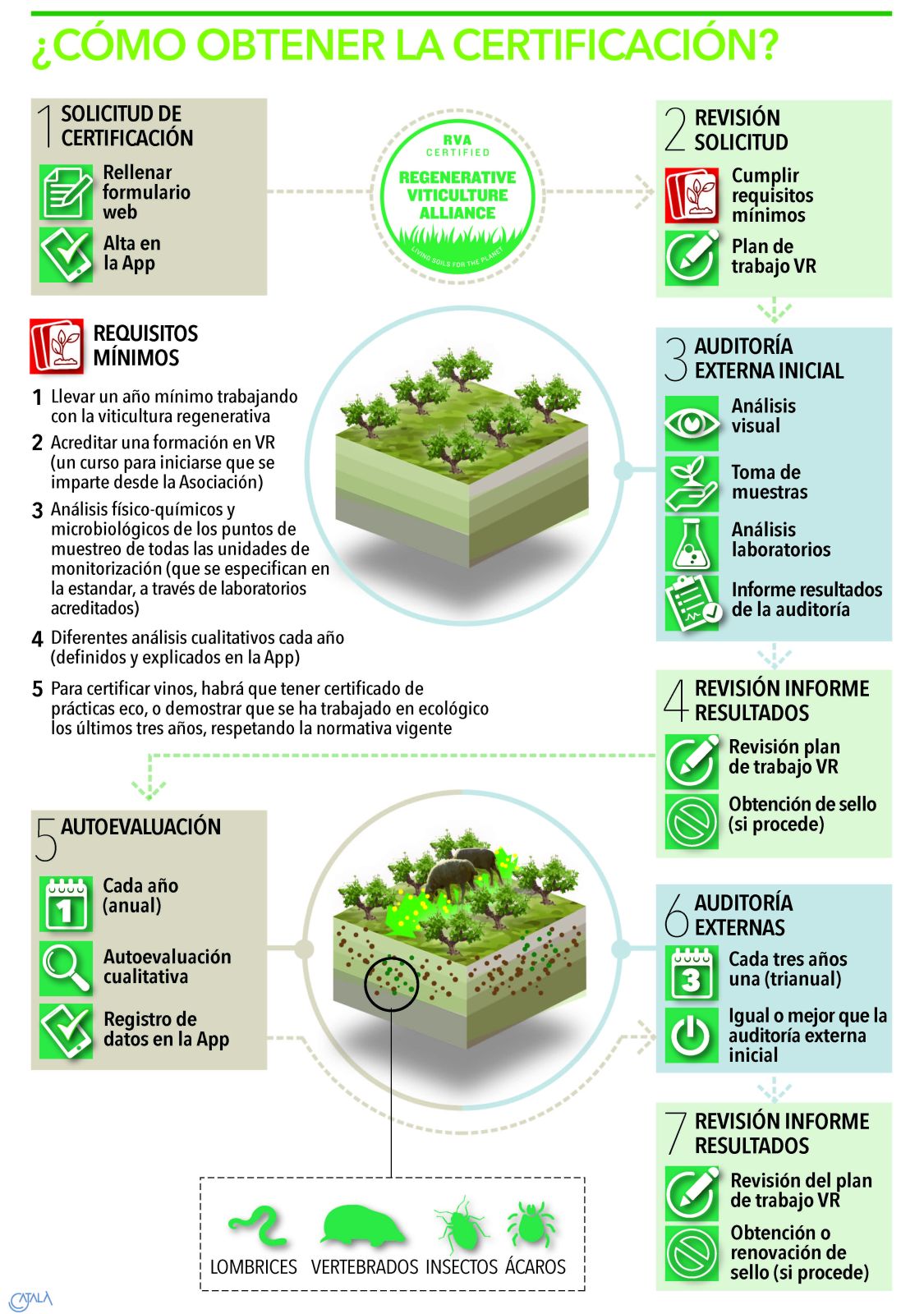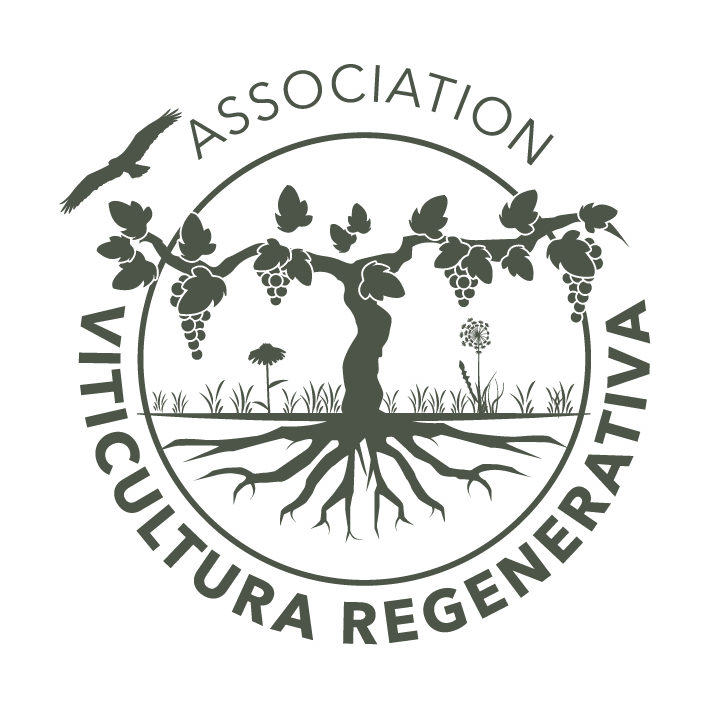RVA, the first international certification in regenerative viticulture comes into force
From the Association of Regenerative Viticulture, and in collaboration with The Regenerative Viticulture Foundation and the international certifying entity Ecocert, we have created the first international certification in regenerative viticulture, called Regenerative Viticulture Alliance (RVA).
Its aim is to certify wines that come from regenerative vineyards and, therefore, help to mitigate the effects of global warming, and to publicly recognize the efforts made by vine growers and producers around the world who implement this winegrowing model and demonstrate the improvement of the soils in which they produce grapes.
Vine growers and wine producers who start the certification process will have a mobile app (also available as a web app) that has a detailed work plan and a field notebook to keep track of the practices implemented and monitor the development of the vineyard. It is an effective way to monitor regenerative practices to make the certification procedure easy, intuitive and accessible to any winegrower or winemaker who applies the required practices.
To certify vineyards as regenerative, winegrowers must carry out an annual self-assessment using the app and a certification visit for the vineyards every three years, while the wines will be certified every through visits to the winery by the certifying company.
The RVA contemplates a transitional status that vine growers can use for up to six years if they are not implementing all the practices recommended by the standard. Once all the regenerative viticulture practices are implemented, these growers will obtain the ‘RVA Certified’ seal.
Those interested in obtaining the certification must apply through the following form: https://www.viticulturaregenerativa.org/en/rva-certification

